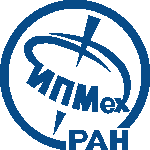
|
ИСТИНА |
Войти в систему Регистрация |
ИПМех РАН |
||
Equations in Groups and Topologizabilityдоклад на конференции
- Автор: Olga Sipacheva
- Международная Конференция : 2010 International Conference on Topology and its Applications
- Даты проведения конференции: 27-30 июня 2010
- Тип доклада: Приглашенный
- Докладчик: Olga Sipacheva
- Место проведения: Nafpaktos, Greece, Греция
-
Аннотация доклада:
In 1944, Markov proved that any subset of a countable group which is unconditionally closed (that is, closed in any Hausdorff group topology on this group) must be algebraic (that is, representable as a finite union of solution sets of systems of equations) and asked whether this is true for any groups. This problem is closely related to other Markov's problem on the existence of a nondiscrete Hausdorff group topology on an arbitrary group, because a group is nontopologizable (does not admit such a topology) if and only if the complement of the identity element in this group is unconditionally closed. In 1980, Ol'shanskii constructed an example of a countable nontopologizable group (in which the comlement to the identity is algebraic) and Shelah constructed a CH example of an uncountable nontopologizable group. In 2006, this author noticed that Shelah's group gives a consistent answer to Markov's question, namely, the complement to the identity element in this group is not algebraic. The author has found out since then that a ZFC example is contained in Hesse's 1979 unpublished dissertation. The current state-of-the-art is delineated. It is proved that any group can be embedded in a group with noncoinciding algebraic and unconditionally closed subsets.
- Добавил в систему: Сипачева Ольга Викторовна